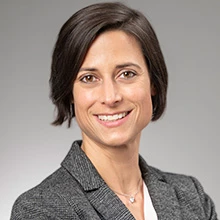 © Disability:IN
© Disability:IN
The Covid-19 health crisis has exacerbated existing gender inequalities worldwide. Women are at a much higher risk than men to lose their jobs because of sectorial segregation where they are overrepresented in industries negatively affected by the pandemic, such as food and retail services. Moreover, closed childcare centers and remote education for their children are forcing women, for example, in the United States to leave the workforce at four times the rate as men. And in India, the shutting down of factories deprives many young women of new-found economic opportunities that allowed them to start an independent life. Finally, stay-at-home orders make it much more difficult for women in abusive relationships to escape a cycle of violence, causing a “shadow pandemic.”
But what about women with disabilities? Employment rates of women with disabilities are the lowest compared to men with disabilities and non-disabled men and women. Young women with disabilities endure up to ten times more gender-based violence than those without disabilities. So how will the economic downturn affect women who are already excluded from education and employment opportunities because they have different needs for communication and physical access? And how can countries ensure that the services extended to survivors of domestic violence take into account the specific dependency of women with disabilities on their caregivers?
Women, Business and the Law (WBL) recently conducted pilot research on women with disabilities. We are trying to better understand how countries worldwide use their legal systems to protect women with disabilities from the multiple and intersectional discrimination they face compared to men with and without disabilities. To this effect, we added four new data points in the 2020 Women, Business and the Law primary data collection. In cooperation with local legal experts, we were able to conduct a preliminary assessment for 176 economies. This research is the first of its kind to map the legal framework on the rights of women with disabilities on a global scale. The preliminary results yield some surprising findings: While 71 economies have a constitutional provision that guarantees equal rights for persons with disabilities, none of the analyzed constitutions mention women with disabilities. With regards to statutory laws, 138 economies have a law, other than the constitution, that addresses the rights of persons with disabilities. However, only one-fourth of the analyzed economies – or 35 to be exact – explicitly recognize and protect the rights of women with disabilities in their legal framework.
For example, Gambia’s Women’s Act of 2010 imposes an obligation to “ensure the protection of women with disabilities and take specific measures commensurate with their physical, economic and social needs to facilitate their access to employment, professional and vocational training, as well as, their participation in decision-making.” Kuwait’s Law concerning Rights of People with Disabilities of 2010 affords additional maternity benefits to women with disabilities. Moldova recognizes the reproductive health needs of women with disabilities, including access to gynecological treatment and counselling on family planning (Law on Social Inclusion of Persons with Disabilities of 2012). And Indonesia’s Law on Disability of 2016 recognizes the importance of protecting women with disabilities from violence and providing easily accessible safe houses.
Figure 1: Preliminary Findings on the Legal Framework Related to Women with Disabilities
The Women, Business and the Law pilot data form part of the World Bank Group’s 10 Commitments on Disability-Inclusive Development. On this year’s International Day of Persons with Disabilities, we are committed to continuing our research and ensure that the voices of women with disabilities are heard by policymakers worldwide.



Join the Conversation